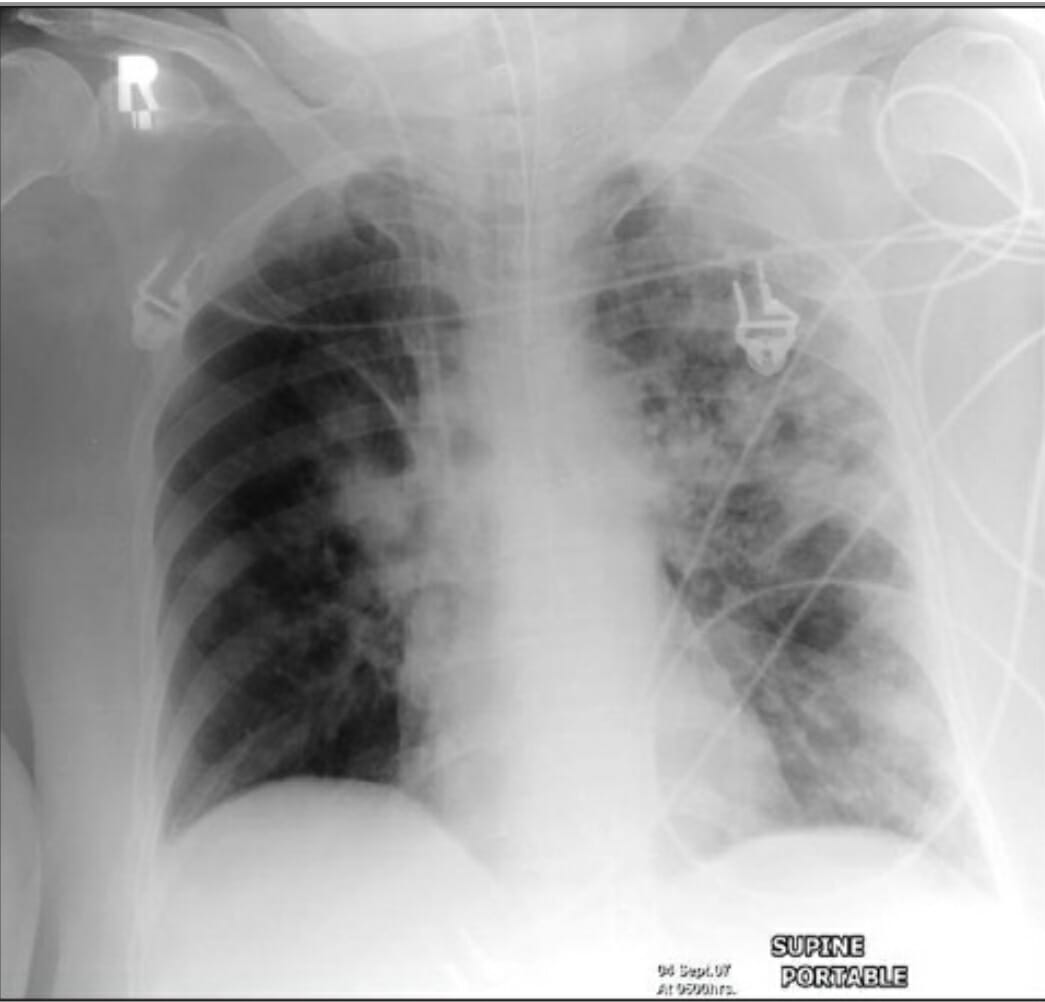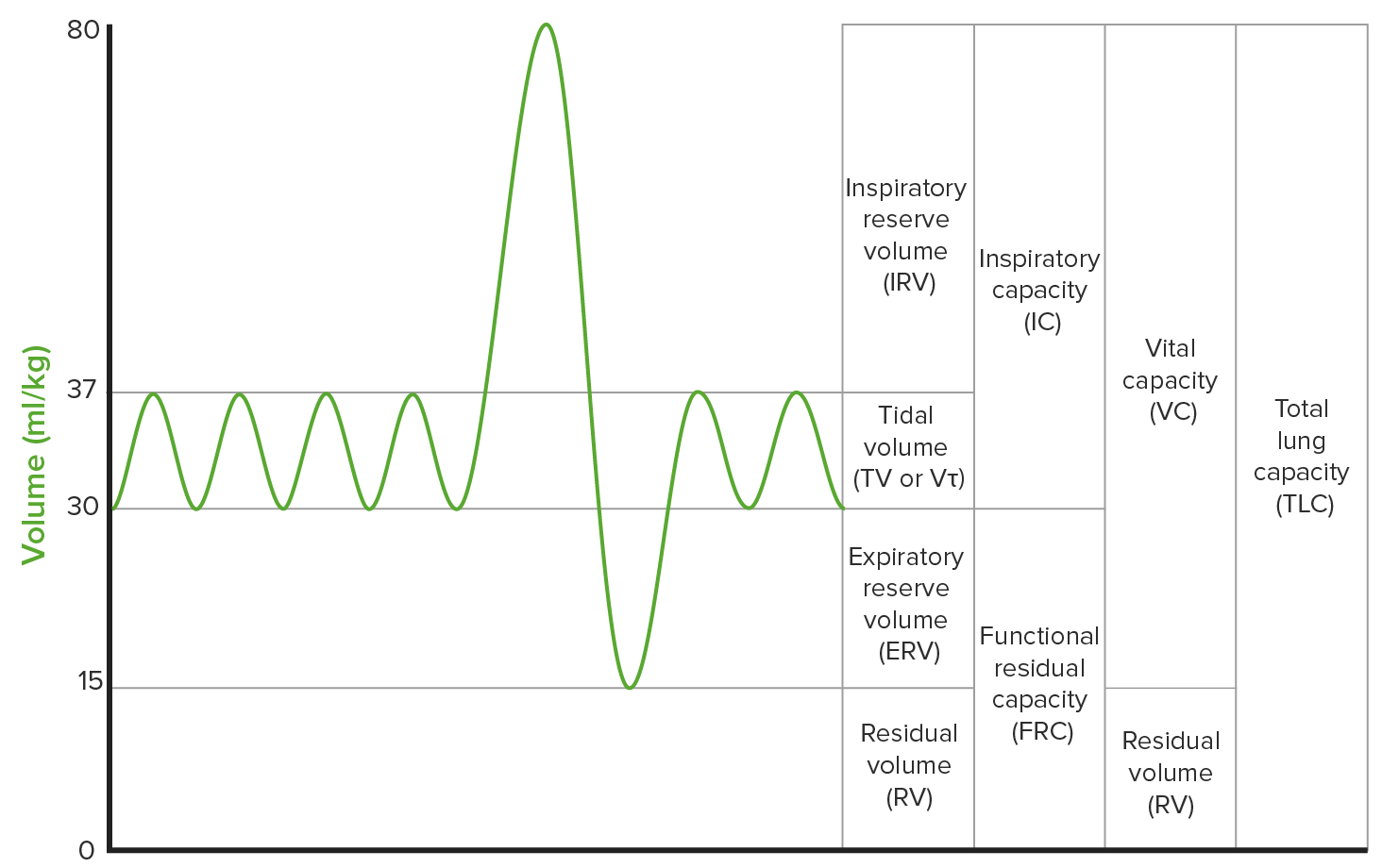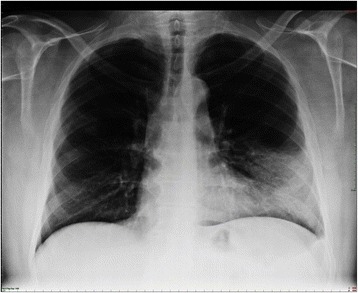Playlist
Show Playlist
Hide Playlist
Complications of Community Acquired Pneumonia
-
Slides 01 URTIBronchitisPneumonia RespiratoryAdvanced.pdf
-
Download Lecture Overview
00:00 The other issues that you can get with pneumonia, are other complications. We’ve mentioned severe hypoxia, we’ve mentioned septic shock, and I’ve also mentioned ARDS. These are physiological complications that occur with severe pneumonia. 00:15 In addition, you have renal impairment- again, I have discussed that already. But, there are other complications. Patients in hospital are at risk of a deep vein thrombosis. 00:25 so they might develop a deep vein thrombosis. Atrial fibrillation is a common complication of acute pneumonia, and that will settle whereas the patient gets better. Another important thing is acute cardiac ischemia and that occurs in patients who are being stressed, and pneumonia is a great physiological stress for the body, and therefore, if somebody has underlying ischemic heart disease then that could have precipitated a myocardial infarction or angina, or decompensation if they've got cardiac ventricular impairment. 01:01 So the important complications of pneumonia are not to miss are infective ones and this largely comes down to pleural effusions. Parapneumonic effusions, there are small effusions that occur in patients with pneumonia, and are not infected, are present in about a third of patients and these will resolve as the patient gets better. However, in a minority of patients about 7% , 5 or 10% that effusion will become infected and become a complex parapneumonic effusion, and eventually that moves on to form an empyema. So this X ray shows somebody presenting with left lower lobe pneumonia, but now you can see that the C-reactive protein was very high on the day of the admission, about 330, 7 days later after treatment, it had gotten better, but then a couple days later they redeveloped a fever, and the CRP has jumped back up to over 140. And the chest X ray here shows some left-sided shadowing pneumonia, but also you can see there is some plural shadowing going up to the left-hand side of the chest, and this reflects an infected pleural effusion. 02:04 You can see that on the chest X ray, and that diagnosis would be empyema, and these situations, a complication of community acquired pneumonia. Other infective complications are actually pretty rare but you can get are lung abscesses, little more likely in alcoholics or those who've aspirated, and it’s actually more likely with certain bacteria, Staphylococcus aureus, Klebsiella, and anaerobes. You can also get spread of infection from the lung to other parts of the body. This is pretty rare, but occasionally you get peritonitis, arthritis, endocarditis as a complication of pneumonia. What is actually quite common, in somebody who's been in hospital and treated for pneumonia, and the infection's initially gotten better then has deteriorated with an increasing fever again, is that they may have an underlying associated cellulitis. So initial antibiotics given in pneumonia will be intravenous, and where the intravenous cannula has been placed, there is relatively high chance that they can develop a cellulitis during their hospital stay. 03:03 And antibiotic therapy can cause clostridia difficile diarrhea, a super infection of the gut, a Clostridia difficile and that is actually quite a common complication of patients receiving antibiotics in hospital, and can be quite dangerous.
About the Lecture
The lecture Complications of Community Acquired Pneumonia by Jeremy Brown, PhD, MRCP(UK), MBBS is from the course Infections of the Respiratory Tract.
Included Quiz Questions
A 65-year-old man is being treated for pneumococcal pneumonia. CRP level before treatment was 300 mg/L. After 4 days of antibiotics, the patient's fever broke and the CRP level returned to normal. A few days later, the patient started to develop fever again and the CRP level was 150 mg/L. What is the best next course of action?
- Repeat a chest X-ray to check for pleural effusion.
- Perform ECG and cardiac troponins to look for cardiac ischemia.
- Perform echocardiogram to evaluate for pericardial effusion.
- Restart the same course of antibiotics to complete therapy.
- Perform ultrasound of the deep veins to look for DVT.
Which of the following is NOT a common complication associated with pneumonia?
- Interstitial lung disease
- ARDS
- DVT
- Atrial fibrillation
- Cardiac ischemia
A 24-year-old man is diagnosed with pneumonia. A culture of the pleural effusion returns positive for Klebsiella species. Which of the following was the patient's most likely risk factor for contracting this pathogen?
- Excessive alcohol consumption
- Prolonged hospitalization
- Exposure to air cooling units
- Age
- Smoking
Customer reviews
5,0 of 5 stars
| 5 Stars |
|
5 |
| 4 Stars |
|
0 |
| 3 Stars |
|
0 |
| 2 Stars |
|
0 |
| 1 Star |
|
0 |






